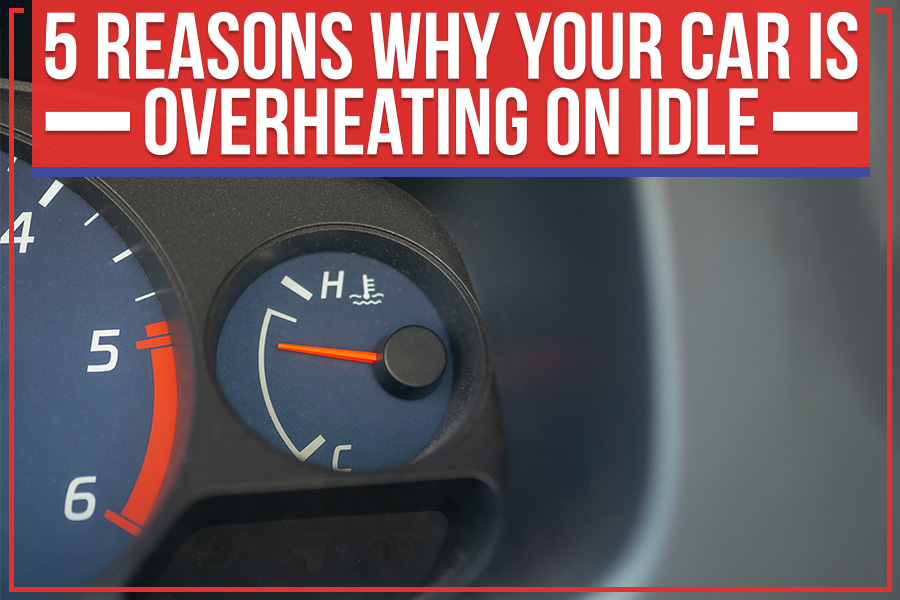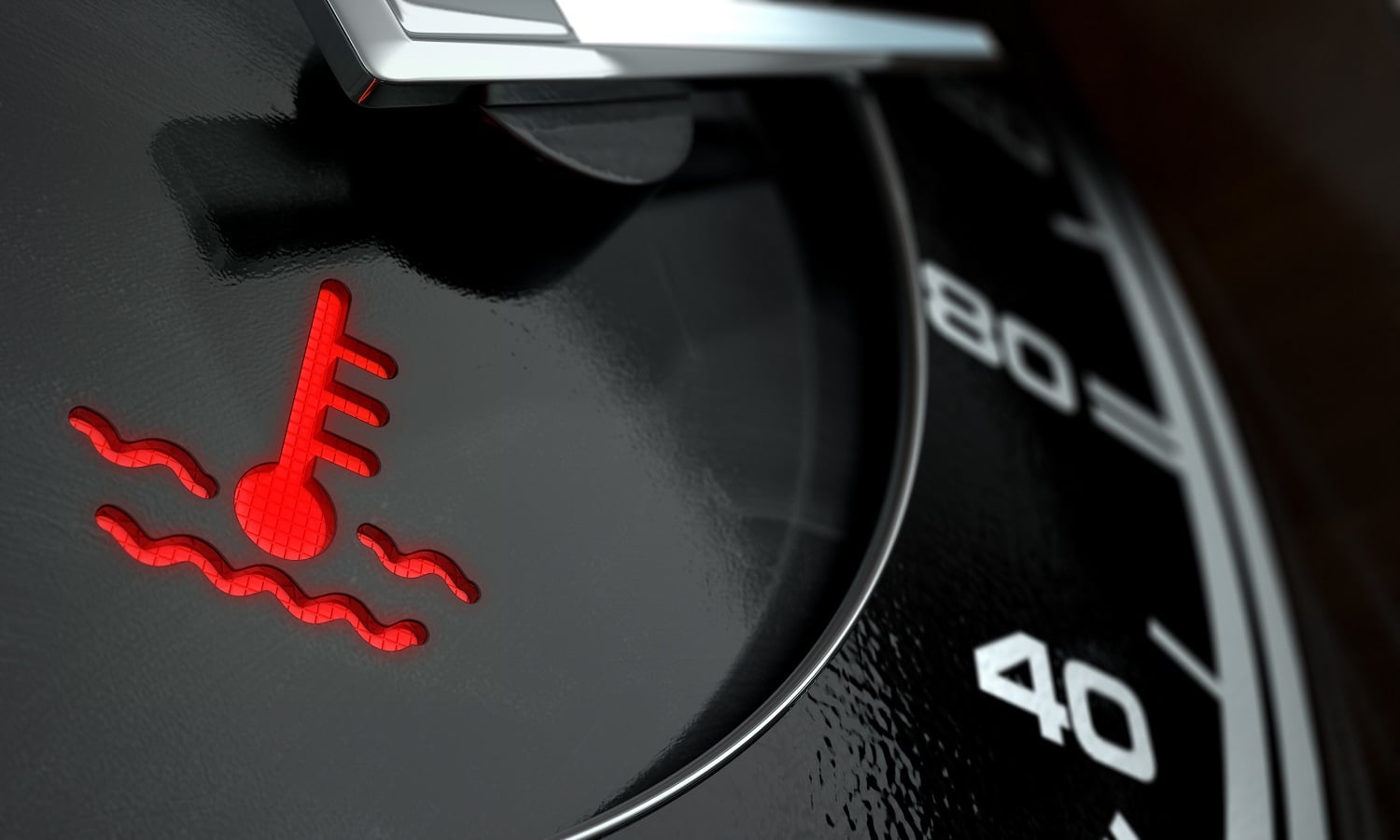If your car is running hot but not overheating, the problem could be a malfunctioning thermostat or a coolant leak. This can occur when the thermostat fails to open fully, causing the engine to heat up without reaching the point of overheating.
Additionally, a coolant leak can prevent the proper circulation of coolant, resulting in high engine temperatures. It’s important to address these issues promptly to avoid potential engine damage. We will explore the potential reasons behind why your car is running hot but not overheating and discuss some possible solutions to resolve the problem.
So, let’s dive in and find out what could be causing your car to run hot.
Common Causes
When your car is running hot but not overheating, there are several common causes that could be contributing to this issue. Understanding these common causes can help you diagnose the problem and address it before it leads to serious damage. Below, we’ll explore some of the most frequent reasons why your car may be running hot but not overheating.
Coolant Level
One of the most common causes of a hot-running engine is a low coolant level. If there’s not enough coolant in the system, the engine may not be able to maintain a stable temperature, resulting in overheating. Check the coolant level in the reservoir and the radiator to ensure it’s at the proper level.
Thermostat Issues
A faulty thermostat can also cause your car to run hot without reaching the point of overheating. If the thermostat is stuck closed, it can prevent the proper flow of coolant through the engine, leading to overheating. Conversely, if it’s stuck open, the engine may not reach the optimal operating temperature, causing it to run hot. Inspect the thermostat to determine if it’s functioning correctly.
Water Pump Problems
A malfunctioning water pump can impede the flow of coolant through the engine, leading to overheating. Common issues with the water pump include leaks, bearing failure, or impeller damage that reduces its ability to circulate coolant effectively. Inspect the water pump for any signs of damage or wear, and consider having it professionally evaluated if issues are suspected.

Credit: www.feldmanwoodhaven.com
Faulty Radiator
One of the common reasons for a car running hot but not overheating is a faulty radiator. The radiator plays a crucial role in maintaining the optimal temperature of the engine by dissipating heat generated during combustion. If the radiator is not functioning properly, it can lead to inadequate cooling and result in your car running hot. There are two main issues associated with a faulty radiator: clogged radiator and leaking radiator.
Clogged Radiator
A clogged radiator occurs when the passage through which the coolant flows becomes obstructed, restricting the normal flow of coolant. The blockage can happen due to the accumulation of debris, minerals, or sediment in the radiator. When this happens, the coolant cannot effectively circulate through the radiator, impeding its ability to cool down. As a result, the engine temperature starts to rise, causing your car to run hot.
Identifying a clogged radiator can be challenging, but there are a few signs to watch out for. One key indicator is a gradual increase in the engine temperature over time. You may also notice reduced cooling system efficiency, resulting in poor air conditioning performance or improper heater operation.
The best way to address a clogged radiator is through a thorough cleaning. This can be done by either flushing the radiator yourself or taking your car to a professional mechanic. Flushing the radiator involves draining the coolant, removing the radiator cap, and using a specialized radiator cleaner to break down any obstructions. Once cleaned, refilling the radiator with fresh coolant ensures optimal circulation and restores proper cooling efficiency.
Leaking Radiator
A leaking radiator is another potential cause of a car running hot but not overheating. Over time, the radiator can develop cracks or leaks due to wear and tear, causing the coolant to escape. Consequently, the coolant level decreases, leading to inadequate cooling and higher engine temperatures.
Detecting a leaking radiator is relatively easier than identifying a clogged one. Keep an eye out for signs such as puddles of coolant or water underneath your vehicle, especially when it has been parked for some time. Additionally, you may notice the coolant level dropping rapidly or the engine temperature fluctuating unexpectedly.
Repairing a leaking radiator typically involves either patching the crack or replacing the entire radiator assembly. It is essential to address the issue promptly to prevent further damage to the engine and ensure the longevity of your vehicle.
In summary: A faulty radiator, whether due to clogging or leaking, can cause your car to run hot but not overheat. Identifying and addressing these radiator issues promptly can help maintain optimal engine temperature, prevent damage, and ensure your car runs smoothly.
Cooling System Concerns
Experiencing car troubles with the cooling system can lead to overheating concerns. If your vehicle is running hot but not reaching the point of overheating, it may indicate underlying issues that require prompt attention to prevent potential damage. Monitoring the cooling system and seeking professional assistance can help diagnose and address the cause of this problem effectively.
When your car is running hot but not overheating, it can leave you puzzled and concerned. One of the primary reasons for this issue is problems related to the cooling system. By understanding these concerns, you can diagnose the problem and take the necessary steps to rectify it. The most common cooling system concerns include fan malfunction and coolant leakage. Let’s explore each of these issues in detail.
Fan Malfunction
A fan malfunction is a potential culprit when your car is running hot but not overheating. The fan plays a crucial role in maintaining the optimal temperature by cooling the radiator. If it fails to function properly, the radiator won’t receive adequate airflow, leading to the vehicle running hotter than usual.
If you suspect a fan malfunction, start by checking the electrical connections and wiring leading to the fan. Look for any loose or disconnected wires that could be the root cause of the problem. Additionally, examine the fan blades for any damage or debris that may hinder its rotation.
To test the fan’s functionality, you can directly connect it to a power source. If the fan doesn’t turn on, it’s likely faulty and needs to be replaced. On the other hand, if the fan works when connected externally, the issue might lie with the fan relay or temperature sensor. Consulting a professional mechanic will help you further diagnose and address this problem.
Coolant Leakage
Coolant leakage is another common issue that can cause your car to run hot but not overheat. The cooling system relies on a consistent circulation of coolant to regulate the engine’s temperature. When there are leaks in the system, the coolant level decreases, resulting in inadequate cooling and increased engine heat.
To identify coolant leakage, you can start by inspecting the engine bay for any visible signs of coolant puddles or stains. Check the radiator, hoses, water pump, and thermostat housing for any signs of leakage or cracks. Use caution when inspecting hot components to avoid burns.
In some cases, the coolant leakage might not be visible externally. In such instances, checking the coolant reservoir level regularly can help you detect any decrease. If you notice a consistent decrease in the coolant level without any visible leaks, it’s recommended to have your vehicle inspected by a professional to determine the source of the leakage and perform the necessary repairs.

Credit: gobdp.com
Engine Issues
When it comes to the issues that can cause a car to run hot without overheating, engine problems are a common culprit. If you are experiencing this issue, it’s crucial to address it promptly before more severe damage occurs. Here are some potential engine-related issues that could be causing your car to run hot but not overheat:
Low Oil Levels
If your car is running hot but not overheating, low oil levels could be to blame. Low oil levels can lead to increased friction and heat within the engine, causing it to run hot. Be sure to check your oil levels regularly and top up as needed to prevent this issue.
Faulty Sensors
Faulty sensors can also cause your car to run hot without overheating. If the sensors responsible for monitoring engine temperature are malfunctioning, they may not accurately detect and communicate the actual temperature, leading to a false reading. This can result in overheating without the corresponding warning indicators.
External Factors
External factors can contribute to your car running hot without overheating. Hot weather conditions and driving uphill are common culprits.
Hot Weather Conditions
In hot weather, the engine faces increased heat exposure. High atmospheric temperatures can strain the cooling system.
Driving Uphill
When driving uphill, the engine works harder and generates more heat. This additional stress can lead to the car running hot.

Credit: www.progressive.com
Frequently Asked Questions On Why Is My Car Running Hot But Not Overheating?
Why Is My Engine Temperature High But Not Overheating?
High engine temperature without overheating could be due to a faulty cooling system, such as a malfunctioning thermostat or water pump. It could also be caused by low coolant levels or a blocked radiator. Regular maintenance and inspection are essential for avoiding lasting damage to the engine.
Why Is My Car Running A Little Hotter Than Normal?
Your car may be running hotter than usual due to issues with the cooling system, such as a clogged radiator or a faulty thermostat. It’s crucial to address this problem promptly to prevent further damage to your engine. Be sure to have your car checked by a professional mechanic.
Why Is My Car Temperature Gauge High But No Heat?
If your car temperature gauge is high but there is no heat, it could be due to a faulty thermostat, low coolant levels, a malfunctioning heater core, or a water pump issue. It’s essential to have your car inspected by a professional to identify and fix the problem effectively.
Why Is My Car Overheating But Everything Is Fine?
Your car may be overheating due to a malfunctioning radiator, water pump, or thermostat. Check for leaks and ensure proper coolant levels. Dirty or blocked radiator, cooling fan issues, and a faulty temperature sensor can also cause overheating. Get a professional inspection for accurate diagnosis and resolution.
Conclusion
If your car is running hot but not overheating, there may be several reasons behind this perplexing issue. It is crucial to address this problem promptly to prevent potential damage to your vehicle. By understanding the possible causes and taking appropriate action, you can ensure the smooth operation of your car’s cooling system.
Remember to seek professional help if needed and maintain regular maintenance to keep your car running efficiently.


